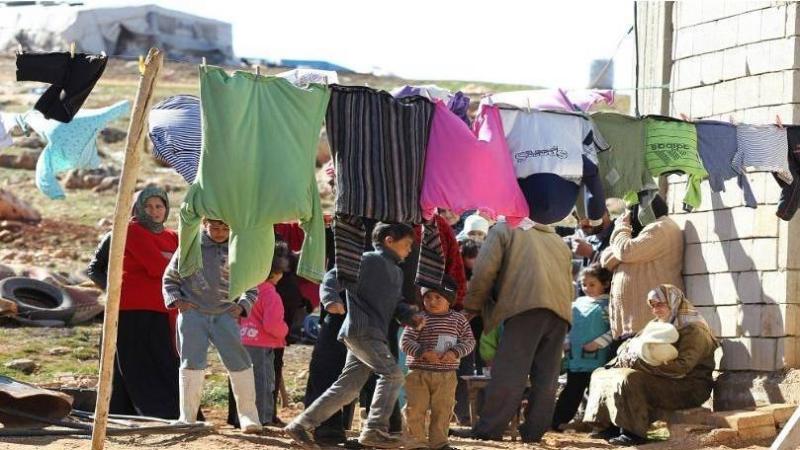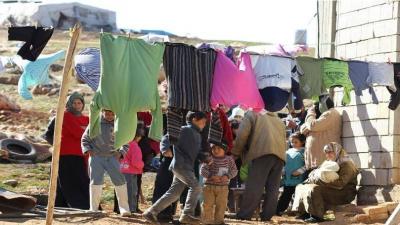The story began in the Brussels meetings attended by Ministers of Foreign Affairs and Social Affairs, Abdullah Bou Habib and Hector Hajjar. The ministers sensed a lack of international responsiveness to Lebanon's efforts to return Syrian displaced persons to their country, and that they would not support Lebanon in this regard. On that day, Prime Minister Najib Mikati expressed his well-known stance that Lebanon cannot accommodate the displaced and the burdens that come with their presence in Lebanese territory, leading to a response from an international official stating that Lebanon receives aid in exchange for hosting the displaced, condemning what she termed as incitement against them in Lebanon. This reflects a significant disparity between Lebanon's intention to return them and the international community's refusal to allow this return under the threat of withholding aid.
The international refusal for the return of the displaced places the Lebanese authority in a significant predicament, as it cannot face the international community or challenge it by organizing the return with the Syrians without coordination with its organizations. To avoid any confrontation with these organizations, Lebanon refrains from direct negotiations with the Syrians to agree on return steps. On the other hand, Lebanon is no longer capable of hosting such numbers while the Lebanese citizen suffers from a lack of purchasing power and the deterioration of the local currency amidst a lack of water and electricity.
Even in the file of displaced persons, meetings are held once in Baabda and another time in the Grand Serail, amidst overlapping powers between the Ministries of Social Affairs and Displaced Persons. Informed sources indicated that Minister Issam Sharafeddine informed Mikati of a plan he has to return the displaced persons, which he intends to share with the Syrians. Mikati's response was: "Go with a personal initiative and do not say you are an official envoy because international organizations refuse to coordinate with Syria on this issue."
Following a visit to Syria by the Minister of Displaced Persons, a dispute erupted between him and Minister of Social Affairs Hector Hajjar, who viewed his colleague's actions as an encroachment on his ministry's jurisdictions. Sharafeddine relied on a mandate he previously received from the Prime Minister. The debate intensified between them, with their shouting echoing throughout the Grand Serail, prompting a security alert. Sharafeddine proceeded to visit Syria armed with a mandate from the Cabinet, claiming a copy of it is with the General Secretariat. He was received by the Syrian Minister of Local Administration and the Minister of Interior, who conveyed that Syria has no problem with the return of the displaced, stating that it had previously announced a general amnesty that everyone could benefit from.
In light of the recent dispute with Hajjar, Sharafeddine was absent from yesterday's meeting at the Grand Serail, while Hajjar attempted to downplay the gravity of the disagreement with a statement released after the meeting. Informed sources hinted that Sharafeddine's absence might be related to his inclusion in the list of ministers intended to be replaced in the government. In a conversation with "Nidaa Al-Watan," Hajjar downplayed the significance of the conflict that arose between him and the Minister of Displaced Persons, stating that what is important is the concerted efforts to address this issue, which has exceeded Lebanon’s capacity to bear its repercussions and burdens.
He sees the importance of the follow-up committee coordinating between the officials in Lebanon and the international community that opposes this return and does not align with government efforts in this regard. He believes that continued negotiation is the only way to convince them of the correctness of the Lebanese position, which requires further coordination and the involvement of all ministries concerned with the file, including the Ministries of Foreign Affairs and Defense.
The issue of displaced persons involves social, political, and economic factors. In addition to the international community's refusal of the principle of return and its diligent work on long-term plans aimed at absorbing and integrating the displaced into Lebanese society, it remains unknown how Syria will respond to Lebanon's attempts, which struggles with managing the file and determining the officials responsible for it. Politically, the Syrian side will not be satisfied with handling it through individual initiatives, even at the ministerial level, as long as there is no formal mandate received through official channels. The essential question here is: will they find it beneficial to delegate this file to Mikati, or will closer allies be prioritized in reaping its rewards? Another question pertains to the government's planned steps as long as international organizations continue to refuse—will it resort to imposing an annual tax on the displaced and set a residence fee and a tax for each tent housing the displaced? Will the government agree to form a joint coordination committee with the Syrians to organize the return, headed by General Abbas Ibrahim, as previously agreed?




